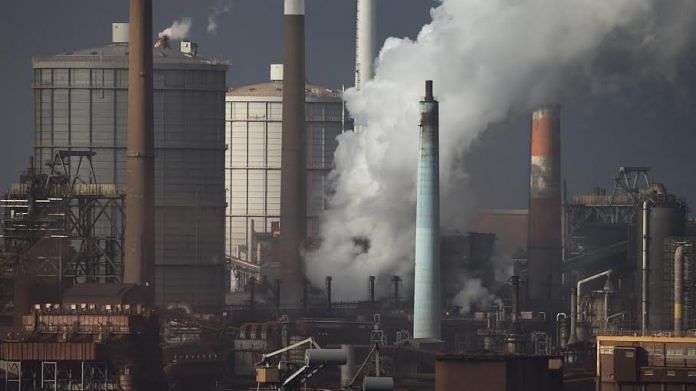London: Global carbon emissions jumped the most in seven years in 2018 as energy demand surged, according to BP’s annual review of world energy, indicating the world is falling behind in its efforts to rein in climate change.
The report, one of the most closely watched surveys of global energy trends, found that primary demand rose at the fastest pace this decade in 2018 even though economic growth weakened. China, India and the U.S. were responsible for two thirds of the 2.9% increase in consumption.
Growing Appetite
Urgency is building around the world to contain a global increase in the temperature, which has risen 1 degree Celsius since the start of the industrial revolution and is on track to at least double that increase by the end of the century. It marks the quickest change in the climate since the end of the last ice age some 10,000 years ago.
“At a time when society is increasing concerns about climate change and the need for action, energy demand and carbon emissions are growing at their fastest rate for years,” BP Chief Economist Spencer Dale said at a briefing in London.
Also read:Carbon Capture might help reverse the effects of global warming, but it isn’t enough
Much of the gains were driven by more volatile weather patterns. An increase in the number of days that were either unusually hot or cold boosted energy use for heating and cooling, Dale said. As a result, global CO2 emissions rose for a third straight year, a trend likely to stick for the time being.
Almost 200 nations pledged to take steps to limit warming to well below 2 degrees through the Paris Agreement on climate change in 2015. Their aim was to limit the superstorms, droughts and famine predicted to happen more frequently with runaway climate change.
Global Emissions Up
Even the dirtiest fossil fuel for power generation is increasing. Both consumption and production of coal advanced at their fastest rate for five years, driven by the need for developing economies across Asia to connect millions of homes to a reliable source of electricity. That’s despite coal’s share of primary energy falling to just over a quarter of primary energy and 17 gigawatts of plants burning the fuel being retired.
BP’s report contained some more hopeful trends. Renewable energy consumption jumped 15% in 2018, near the record advance from a year earlier. China, again at the forefront, is adding more renewable energy than the world’s most developed nations in the OECD combined, BP said.
Cleaning Up
Growth in output from wind, solar, geothermal, biomass and burning waste accounted for about a third of the increase in total power generation, or the same as the increase in coal.
“Renewables can’t grow quickly enough,” Dale said.
Also read: Muhammad Yunus on what he does best: removing poverty, unemployment and carbon emission



